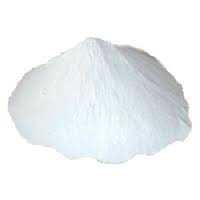Sulphur is a brittle yellow non-metallic solid. It burns easily, releasing toxic fumes of sulphur dioxide which has a very faint odour. Sulphur is widely distributed in nature. It is found in many minerals and ores and is a component of all living cells. Approximately the 8th most abundant mineral in the human body and it is a component of proteins and some common enzymes.
Functions of Sulphur in the Body
Sulphur performs a number of functions in enzyme reactions and protein synthesis. It is necessary for formation of collagen - the protein found in connective tissue. Sulphur is also present in keratin, which is necessary for the maintenance of the skin, hair, and nails - helping to give strength, shape, and hardness to these protein tissues. Sulphur is important to cellular respiration, as it is needed in the oxidation-reduction reactions that help the cells utilize oxygen.
Sulphur Deficiency in the Body
Since sulphur has many roles in the body including maintenance, structural, oxygen utilisation, defence, and communication, deficiencies in the body can cause what is known as age related diseases. These include circulatory problems, nerve disorders[1], arthritis, pain, weakened immune systems[2], skin problems and the formation of scar tissue and wrinkles.
| Signs | Symptoms |
|---|---|
| Wrinkles | Sore joints and muscles |
| Skin easily damaged | Chronic fatigue |
| Lung dysfunction breathing problems | High cholesterol |
| Ulcers | Diabetes |
| Allergic reactions | Migraine headaches |
| Candida albacans | Diverticulosis |
References
- J Tor-Agbidye and et all 1999 Bioactivation of cyanide to cyanate in sulfur amino acid deficiency: relevance to neurological disease in humans subsisting on cassava" 50 (2): 228-235 Toxicological Sciences
- Grimble R.F. & George K 1998 Immunonutrition: role of sulfur amino acids, related amino acids, and polyamines. July–August Volume 14, Issues 7-8, p563-648 Nutrition

